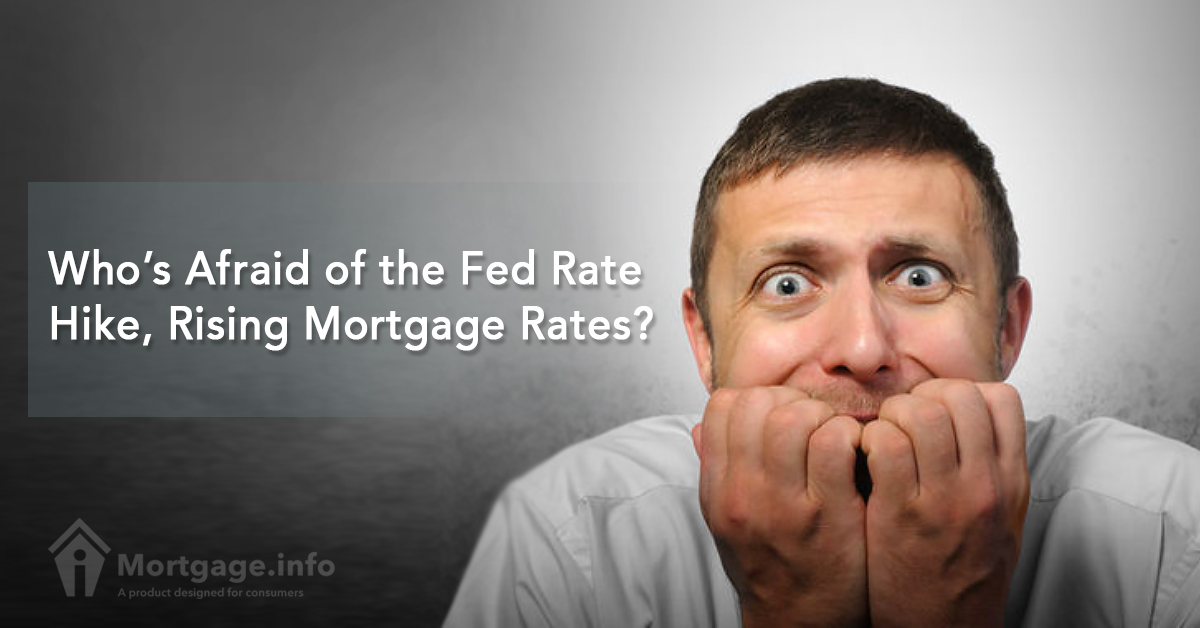Last week the Federal Reserve raised its target range for the federal funds rate the first time this year and the second time in a decade. The Fed rate hike itself does not directly affect mortgage rates but it does hold implications to financing and refinancing homes in the near future. Here’s what you need to know.
Happening Now
In fairness, mortgage rates have been on the rise since Donald Trump’s election as the 45th U.S. president. Following Trump’s victory in November, mortgage rates climbed over the 4% mark. At December 15, the 30-year fixed-rate mortgage stood at 4.16% per Freddie Mac’s weekly mortgage survey which was conducted before the Fed rate hike.
The Fed, acting on a much-anticipated increase in the midst of a strengthened labor market and expanding economic activity, has hiked its targeted range for the fed funds rate between 0.50% and 0.75%. The recent increase is just the first in a series of rate hikes that the Fed contemplates for next year.
When there is a Fed rate hike, banks find it more expensive to borrow money, which in turn gets passed onto consumers in the form of higher-cost credit cards, business loans, and mortgages.
However, a Fed rate hike does not always move mortgage rates upward. Once the Fed raised its fed funds rate range last year but mortgage rates still dropped. We have to factor in any global economic event that adds volatility to the markets, e.g. Brexit.
What’s relevant here is that the rate hike comes in a time when the yield on the 10-year Treasury note is rising. Mortgage rates go together with 10-year Treasury note yield. So when the yield goes up, expect mortgage rates to go up as well.
Here’s What You Can Do
While mortgage rates are definitely higher than they were a few months back, they are still relatively low compared to two decades ago.
News reports which carry expert opinions caution homebuyers and homeowners about the fed rate hike and its effects to prevent them from panicking and making hasty decisions.
Here’s what the rate hike means for you if:
- You plan to buy a home. Experts recommend that you go for a 30-year fixed rate mortgage. Interest rates on 30-year FRMs track any changes to the 10-year Treasury note yield, which in turn moves in a way with the fed funds rate. Given today’s rates, it makes sense to duck into the safety of the 30-year mortgage.
- You own an adjustable-rate mortgage. ARMs rely on the prime rate and LIBOR, which are closely tied to the fed funds rate. Consequently, any increase in the fed funds rate results in an upward tick to ARM rates. Experts advise homeowners to refinance their ARMs into fixed-rate mortgages to avoid this scenario.
- You have a home equity line of credit. Similarly, the rates on HELOC track the federal funds rate. With the fed rate hike, expect to see an increase in your HELOC rate as it adjusts immediately. You can switch to a fixed-rate HELOC.
- You can improve your credit. Your credit rating is an important factor in determining mortgage rates. A good score could land you a better rate.
When rates are up, demand for mortgages usually goes down. This creates a window for some lenders to loosen a bit to attract new homebuyers. A high-rate environment also encourages the proliferation of mortgage options as homebuyers look to find more affordable mortgages.
Thinking about it, a strengthening economy, together with improving personal finances, could induce more first-time homebuyers next year.
Experts Say
“The era of ultra-low interest rates is over,” Lawrence Yun, who is the National Association of Realtors’ chief economist, commented in a statement cited by CNN Money. Mr. Yun, citing rounds of short-term rate hikes in 2017 and 2018, however, added: “Despite these moves, mortgage rates will not rise alarmingly.”
“Mortgage rates will increase, but not too much,” Nela Richardson, who serves chief economist at Redfin, was quoted as saying in a Business Insider report. For 2017, Redfin predicted the 30-year fixed-rate mortgages to go up no more than 4.3%, according to Business Insider.
This is because the Federal Reserve buys a number of mortgage securities, which is intended to lower long-term interest rates on mortgages. For as long as the Fed continues this MBS program and remains a source of mortgage credit, mortgage rates will be kept in check (read lower) as per the report.

